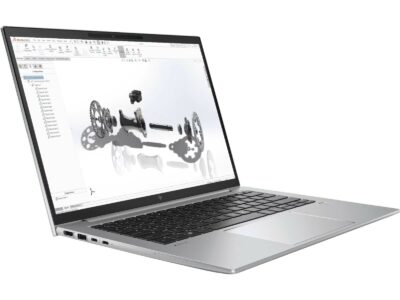In the dynamic realm of high-end video editing, having the right laptop with ample processing power and memory is paramount. The demanding nature of video editing software requires a robust combination of hardware capabilities to ensure a seamless editing experience. In this guide, we will explore the key factors to consider when searching for the best laptops tailored to high-end video editing needs.
Important factors
Let us first understand the two basic and most important features:
1. Processing Power (CPU):
The processor, or CPU (Central Processing Unit), is the brain of your laptop. When it comes to high-end video editing, a powerful CPU is non-negotiable. Look for laptops equipped with multi-core processors, preferably quad-core or higher. This ensures that the laptop can handle the intensive computations involved in rendering and processing high-resolution videos.
2. Memory (RAM):
Random Access Memory (RAM) is the temporary storage that your laptop uses to run applications and processes actively. For video editing, a higher RAM capacity is essential. Aim for a minimum of 16GB, but for more resource-intensive projects, consider 32GB or even 64GB for optimal performance.
Now let us look into the most important factors to look for in a high-performing laptop that will help you make an informed decision:
1. Intel® Core™ i7 and AMD Ryzen 7:
For uncompromising processing power, laptops featuring Intel® Core™ i7/ i9 or AMD Ryzen 7 / 9 processors are top contenders. These high-performance processors excel in multitasking and can handle complex video editing tasks with ease. Look for the latest generation of these processors for the best performance.
2. Clock Speed Matters:
In addition to the number of cores, pay attention to the clock speed of the processor, measured in GHz. A higher clock speed ensures faster data processing, contributing to quicker rendering times in video editing applications.
3. Optimal Memory Configuration
DDR4 RAM: When it comes to memory, laptops with DDR4 RAM offer improved speed and efficiency. Ensure that the laptop allows for easy RAM upgrades so that you can expand the memory as your video editing projects become more sophisticated.
4. Dual-Channel Configuration:
Opt for laptops with a dual-channel RAM configuration. This means the laptop has two separate channels for data processing, enhancing overall system performance during resource-intensive tasks like video editing.
5. Graphics Processing Unit (GPU) Considerations
Dedicated Graphics Card: While the CPU handles most of the video editing workload, a dedicated Graphics Processing Unit (GPU) significantly accelerates certain tasks. NVIDIA’s GeForce RTX series and AMD’s Radeon RX series are renowned for their prowess in video editing applications.
6. Video Memory (VRAM):
For high-end video editing, a GPU with ample Video RAM (VRAM) is crucial. Look for laptops with a minimum of 6GB VRAM to ensure smooth playback and rendering of high-resolution video files.
7. Storage Solutions for Efficiency
SSD for Speed: Opt for laptops equipped with Solid State Drives (SSD) rather than traditional Hard Disk Drives (HDD). SSDs offer faster read and write speeds, reducing the time it takes to load and save large video files.
8. Consider Storage Capacity:
High-resolution video files can quickly consume storage space. Ensure that the laptop has sufficient storage capacity or allows for easy upgrades to accommodate your growing library of video projects.
9. Portability and Display Quality
Portable Design: While processing power and memory are crucial, portability matters, especially for video editors on the move. Look for laptops with a balance of power and portability, considering factors like weight and battery life.
10. High-Resolution Display:
A high-quality display is essential for accurate video editing. Look for laptops with at least a Full HD (1920 x 1080) resolution, and if possible, consider a 4K display for precise color grading and editing.
Some of the recommended laptop options:
1. HP ZBook Firefly 16” G10 Mobile Workstation PC
The Zbook Firefly G10 is known for its extraordinary performance and standout features that make it one of the best laptops for professionals seeking the best performance in a compact sleek designed laptop. It offers the latest 13th gen processors with RAM up to 64GB.
2. DELL XPS
The Dell XPS 13 is known for its compact size and stunning display. With the latest Intel 12th Gen processors, it delivers impressive performance in a thin and light form factor.
3. ASUS ZenBook 14
The ASUS ZenBook 14 combines a slim and lightweight design with powerful Intel 12th Gen processors. Its compact form factor and long battery life make it an excellent choice for editors who are always on the go.
Conclusion
In conclusion, Finding the best laptop for high-end video editing involves careful consideration of processing power, memory, GPU capabilities, storage solutions, and display quality. A laptop that excels in these aspects will not only enhance your video editing workflow but also future-proof your device for upcoming projects. When it comes to recommending the best laptop for video-editing, HP provides advanced laptops tailored for editing, and the HP ZBook Firefly G10 is a standout choice with its Intel® Core™l i7 processor and NVIDIA RTX™ Graphics. Designed with precision for professionals, this mobile workstation offers a powerful yet lightweight solution, perfect for on-the-go productivity in managing demanding tasks.
Compare and view all the best HP laptops for video editing





















